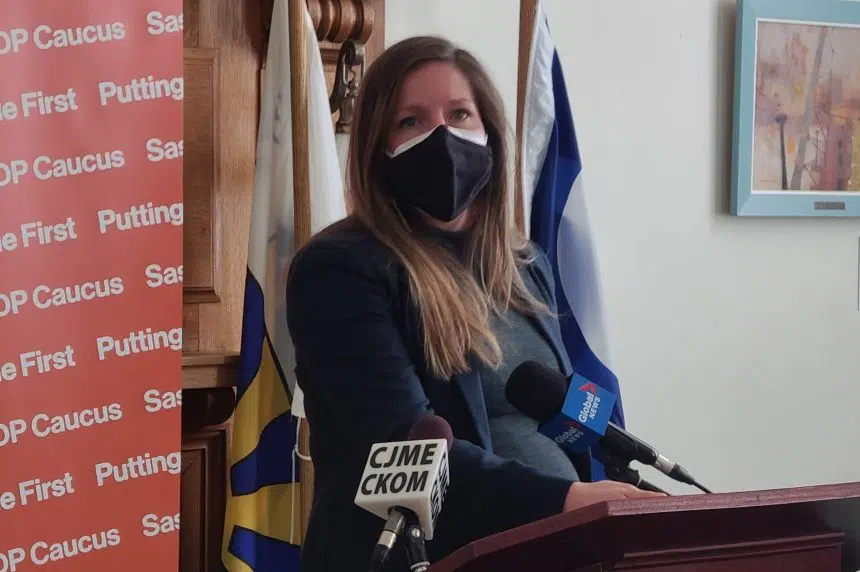Meara Conway says she and others noticed a housing and poverty crisis in the province.
That prompted the NDP Regina Elphinstone-Centre MLA to speak to different communities in the province about what they’re seeing and to write a report featuring her findings.
“There are so many heartbreaking stories and I think it bears noting that this is a crisis that disproportionately impacts children. We have rising child poverty rates; one in four children are living in poverty. This particularly impacts lone-parent families that are led by women,” Conway said.
“I heard from a kookum in Saskatoon who had taken in her three grandkids and was doing very well with them, stabilized. They were in the system because their parents had substance-use disorders and she was doing well by them under the previous system.
“But with the changes under the (Saskatchewan Income Support), she could no longer afford rent, she could no longer afford utilities and those kids were apprehended.”
According to Conway’s report, the changes include ending the Saskatchewan Rental Supplement, disallowing the Canada Housing Benefit for social assistance recipients, and further cuts to shelter-related costs under SIS.
Peter Gilmer, who is from the Regina Anti-Poverty Ministry, said the recent changes have led to an all-time low when it comes to the adequacy of the income support program.
“(That’s) leaving adults only $285 a month to meet all of their non-shelter-related basic needs and only $575 to cover all shelter and utility costs,” Gilmer said. “For homeowners, that would involve potentially mortgage, home insurance, property taxes, et cetera.”
Gilmer said that amount is even less in rural areas of Saskatchewan.
“The biggest change of the SIS program is the wrapping in of all utilities — heat, power, water and basic phone — into what is that very inadequate shelter allowance rate,” he said.
In a written statement, Social Services Minister Lori Carr said the ministry works with multiple levels of government to support people experiencing poverty and homelessness.
“The ministry recently announced changes to the Saskatchewan Income Support program to better support clients with more complex needs who may be at risk of being homeless, and who require more support to see success. Saskatchewan’s income assistance rates are similar — if not better — than those provided in other provinces,” the statement said.
“After we introduced the Saskatchewan Income Support program, our ranking in the Maytree Report increased in three of the four categories — placing us among the top provinces in Canada in providing for people’s basic needs.
“We also continue to make investments in housing in our province, focusing on developing innovative projects with community partners that increase supported living options for our neighbours across Saskatchewan who need more than a home to remain connected to housing.”
Conway said she did give the province credit for announcing recent changes to the SIS program — $113,000 across the province to transition to the trusteeship of money management and a commitment the province would return to direct payments for some of the most challenged clients.
But she said she included in the report stories where those changes don’t seem to be happening.
“If it is happening, it’s on a very narrow scale. What I argue in the report is that this is a symptom of a flawed approach — a very individualistic, narrow fix to our larger issues and it doesn’t even appear that the ministry has done what they said they would do, which is a return to this direct payment system for some,” Conway said.
Conway says some of the solutions she recommends are finding a way to allow homeless people who don’t have ID to access services and a comprehensive cross-ministry strategy to implement a housing-first strategy and provide supportive housing.
Conway’s report can be found here.







